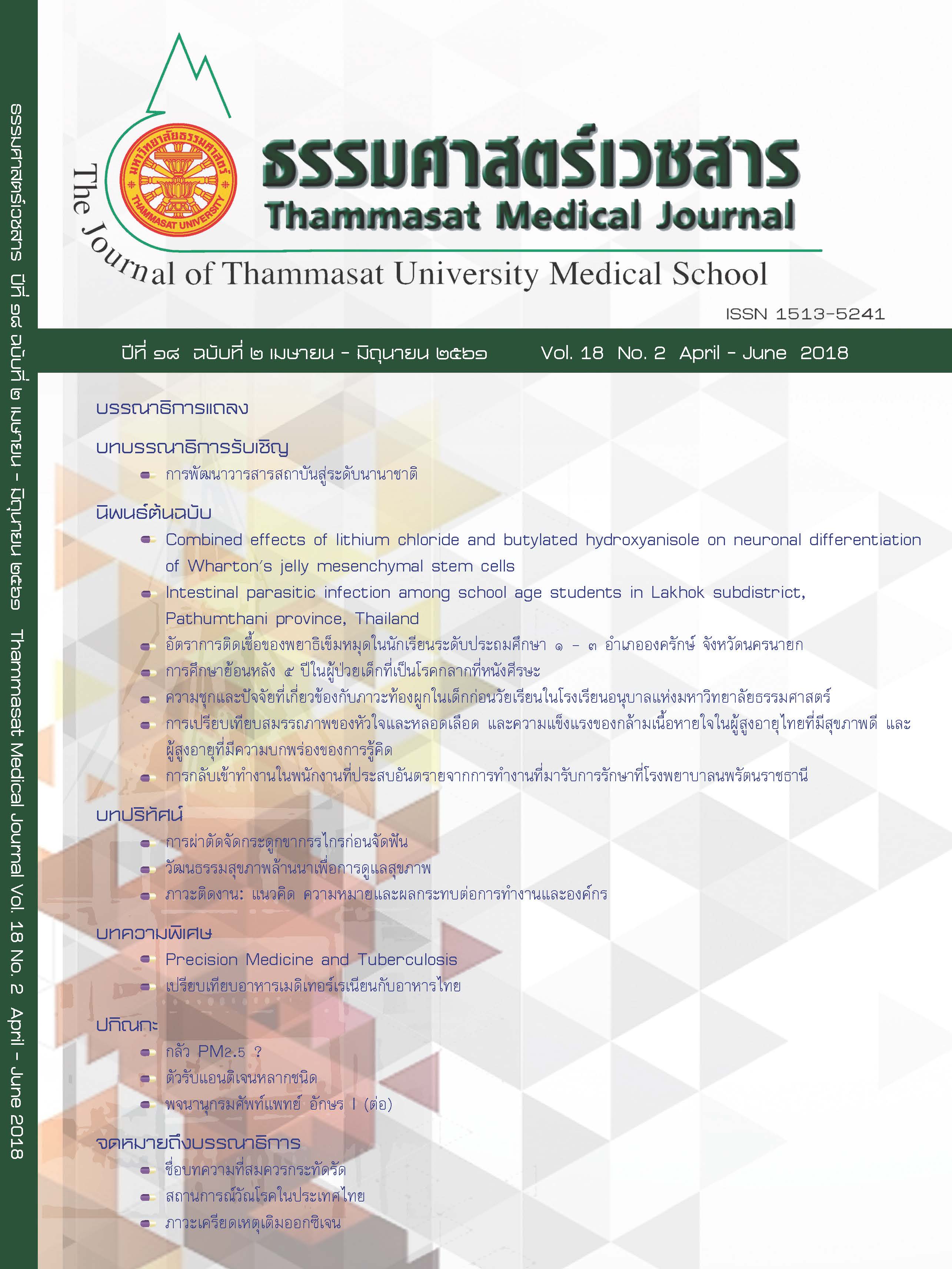Workaholism: Definition and Impact on Work and Organization
Keywords:
Workaholism, Concept, Impact on work and organization, Occupational healthAbstract
Workaholism has become an important concern nowadays because the change in social status and the organizational competition have caused people to work harder and longer hours. Moreover, people can work anywhere at anytime due to rapid technological advancement. Prevalence of workaholism is approximately 8 - 17.5 % among college graduates. Although workaholism and work engagement are similar in long hours of work and excessive attention to work, workaholics are driven internally to incessant work causing several negative impacts on physical and mental health. Some studies showed that workaholism has a negative impact on work and organization while others disagreed with that conclusion. However, there are only a few long-term analytical studies on workaholism. Therefore, further studies about workaholism including causes and impact of workaholism on the quality of work and the organization are important to improve diagnosis and preventative guidance.



